The process of homebuying can feel overwhelming, especially when it comes to securing your first mortgage. This guide aims to simplify the process, making it accessible and manageable for homebuyers, real estate agents, home sellers, and real estate investors alike. By the end of this post, you’ll have a clear understanding of mortgages, how to prepare financially, and the steps to get pre-approved, apply, and close the deal.
Understanding Mortgages
What is a Mortgage?
A mortgage is a loan specifically designed for purchasing real estate. The property itself serves as collateral for the loan, meaning that if you fail to make payments, the lender can seize the property. Mortgages are typically long-term loans, commonly spanning 15 to 30 years.
Types of Mortgages
There are several types of mortgages available, each with its own benefits and drawbacks:
- Fixed-Rate Mortgages: These have a constant interest rate for the life of the loan, making your monthly payments predictable.
- Adjustable-Rate Mortgages (ARMs): These start with a lower interest rate that can change after an initial period, potentially leading to higher or lower payments.
- FHA Loans: Insured by the Federal Housing Administration, these loans are ideal for first-time homebuyers with lower credit scores and smaller down payments.
- VA Loans: Available to veterans and active military personnel, these loans often require no down payment and offer favorable terms.
How Mortgages Work
When you take out a mortgage, you agree to repay the loan in monthly installments over a specific period. Each payment includes both principal and interest. In the early years, most of your payment goes toward interest, but over time, more goes toward reducing the principal balance. This process is known as amortization.
Financial Preparation
Assessing Your Financial Health
Before applying for a mortgage, it’s crucial to assess your financial health. Start by evaluating your income, expenses, and debts. Use this information to determine how much you can comfortably afford to spend on a home.
Budgeting for a Mortgage
Create a detailed budget that includes all potential homeownership costs, such as property taxes, insurance, maintenance, and utilities. Aim to keep your housing costs below 30% of your gross monthly income. This will help you manage your finances and avoid becoming house-poor.
Improving Your Credit Score
Your credit score plays a significant role in securing a mortgage with favorable terms. To improve your score:
- Pay bills on time: Late payments can significantly impact your credit score.
- Reduce debt: Aim to keep your credit card balances low and pay off outstanding debts.
- Avoid opening new credit accounts: Each new account can temporarily lower your score.
Regularly check your credit report for errors and dispute any inaccuracies.
Mortgage Pre-Approval
Benefits of Pre-Approval
Getting pre-approved for a mortgage offers several advantages:
- Strengthens your negotiating position with sellers.
- Provides a clear budget for your home search.
- Speeds up the closing process once you find a home.
How to Get Pre-Approved
To get pre-approved, you’ll need to provide your lender with financial information, including income, assets, debts, and credit history. The lender will review this information and determine how much they’re willing to lend you.
What Lenders Look For
Lenders consider several factors when determining mortgage pre-approval:
- Credit score: A higher score increases your chances of approval.
- Debt-to-income ratio (DTI): Lenders prefer a DTI below 43%.
- Employment history: Stable employment and consistent income are crucial.
- Down payment: A larger down payment can improve your approval odds and terms.
Finding the Right Mortgage
Comparing Mortgage Options
Research and compare different mortgage options to find the best fit for your needs. Consider the following factors:
- Interest rates: Compare rates from multiple lenders to ensure you’re getting a competitive rate.
- Loan terms: Choose between fixed-rate and adjustable-rate mortgages based on your financial goals and risk tolerance.
- Fees and closing costs: Be aware of additional costs, such as origination fees, appraisal fees, and title insurance.
Understanding Interest Rates
Interest rates significantly impact your monthly payments and overall loan cost. A lower rate can save you thousands over the life of the loan. Keep in mind that rates can vary based on your credit score, loan type, and market conditions.
The Application Process
Gathering Documents
To apply for a mortgage, you’ll need to gather and submit various documents, including:
- Proof of income (pay stubs, tax returns, W-2s)
- Bank statements
- ID and Social Security number
- Proof of assets (retirement accounts, investments)
- Debt information (credit cards, student loans, car loans)
Submitting Your Application
Once you’ve gathered your documents, submit your application to your chosen lender. They will review your information, verify your documents, and may request additional information if needed.
What to Expect
After submitting your application, the lender will perform a thorough review, including a credit check and property appraisal. This process can take several weeks. Stay in close communication with your lender to address any questions or concerns that may arise.
Closing the Deal
What Happens at Closing
Closing is the final step in securing your mortgage and completing the home purchase. You’ll meet with your lender, real estate agent, and possibly an attorney to sign the necessary paperwork and finalize the transaction.
Understanding Mortgage Terms
Before closing, carefully review the terms of your mortgage, including the interest rate, loan term, monthly payment, and any prepayment penalties. Ensure you understand all aspects of the loan and ask questions if anything is unclear.
After Securing Your Mortgage
Once you’ve closed the deal, focus on managing your mortgage responsibly. Set up automatic payments to avoid late fees, monitor your loan balance, and consider refinancing if interest rates drop significantly.
Conclusion
Navigating the mortgage process can be challenging, but with the right knowledge and preparation, you can secure a mortgage that fits your needs and budget. Remember to assess your financial health, get pre-approved, compare mortgage options, and stay informed throughout the application and closing process.






